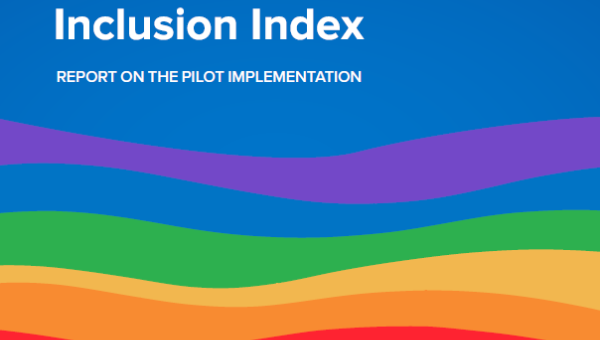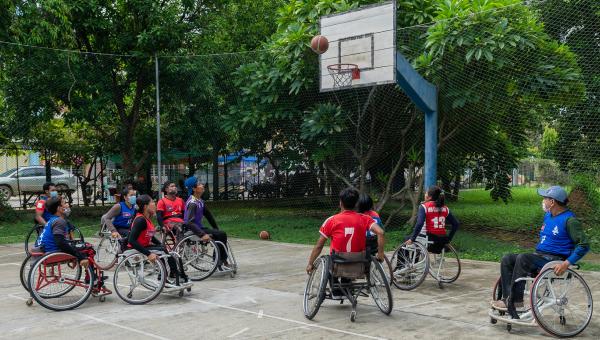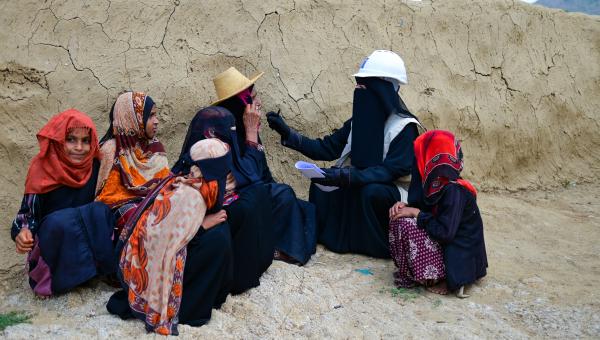Technology transfer for climate resilient flood management in Vrbas River Basin
Technology transfer for climate resilient flood management in Vrbas River Basin
Bosnia and Herzegovina is significantly exposed to the threats of climate change, but has very limited capacity to address and adapt to its negative impacts, in particular the frequency and magnitude of floods from its major rivers which have tripled in frequency in the last decade. The negative impacts of climate change particularly affect the vulnerable groups within the basin and key sectors such as agriculture and energy (hydropower). Vrbas River Basin (VRB) is characterized by a large rural population comprised of the poorest and most vulnerable communities in BiH, including war returnees and displaced people, with high exposure to flooding and its devastating impacts.
In May 2014, Bosnia and Herzegovina experienced its worst flooding in 150 years which resulted in 23 deaths and $2.7 Billion USD worth of damages which is 15% of GDP, and is expected to result in a 1.1 percent contraction in the economy this year, compared to the growth of 2.2 percent that had been predicted before the flood.
The Project “Technology transfer for climate resilient flood management in Vrbas River Basin” will enable the government of BiH and communities of the Vrbas basin to adapt to flood risk through the transfer of adaptation technologies for climate resilient flood management and embark on climate resilient economic activities.
What we do?
Working closely with state, entity and local governments and institutions the project will enable strategic management of flood risk through the legislative and policy framework and appropriate sectoral policies and plans that incorporate climate change considerations. In order to develop institutional and local capacities in Flood Risk Management (FRM) the project aims to:
- Upgrade and rehabilitate of the hydrometric monitoring network,
- Develop flood risks and flood hazard maps for the VRB,
- Develop Flood Risk Management plan (FRM) for Vrbas River Basin (VRB),
- Develop a flood forecasting system and early warning system,
- Develop emergency response plans, and provide trainings in flood-specific civil protection,
- Provide training to local communities in climate resilient FRM, and introduce community-based early warning systems,
- Prepare and implement municipal-level flood response and preparedness plans,
- Provide targeted training on climate-induced FRM to over 100 practitioners and decisions makers,
- Prepare institutional capacity development plan for the long-term development of capability and capacity in Flood Risk Management (FRM),
- Implement non-structural interventions in municipalities of the VRB,
- Implement agro-forestation scheme,
- Introduce financial instruments such as index-based flood insurance and credit deference schemes as a means of compensating for flood damages for agriculture.
Can we mitigate the effects of climate change?
What have we accomplished so far?
- EU Flood Directive 2007/60/EC has been transposed to BiH legislative framework.
- Flood hazard and risk has been incorporated in Law on Spatial Planning and Construction RS.
- Automated hydrometric monitoring network established in Vrbas River Basin, which makes it the first river basin in Bosnia and Herzegovina with a sufficient hydro-meteorological network coverage.
- Data collection and processing has been centralized and is taking place in hydro-meteorological institutes. The network is consisting of 7 hydrological, 2 meteorological and 20 rain gauges.
- Civil protection units equipped with 168 radio stations, 8 digital sirens and 3 radio relays, allowing citizens and businesses alike to benefit from early warnings about upcoming flood events.
- Provided support to the 13 municipalities to improve their ability to better cope with flood events,improve their preparedness and response.
- Flood Intervention Planning improved, as well as knowledge and flood awareness, trainings and flood simulation exercise implemented.
- Climate change model for Vrbas River Basin developed.
- Socio-economic survey in the Vrbas River Basin completed and it includes vulnerability assessment for women in flood risk areas.
- Flood risk modelling and mapping methodology developed and adopted by local institutions.
- Hydrological and hydraulic (1D and 2D) models developed for the purpose of flood mapping and forecasting.
- Flood hazard and risk maps developed and handed over to water agencies and municipalities.
- Project Spatial Data infrastructure, in line with the EU INSPIRE directive developed.
- The Vrbas GeoPortal has been established and activated on http://vrb.pmfbl.org/ and it offers flood hazard and risk maps, flash floods sensitivity model, landslides cadaster and torrential streams cadaster, hydrometric measurements in real time and Participatory GIS (PGIS) tool for flood risk management for local level.
- Professionals in hydro-meteorological institutes and water agencies trained on hydrometric monitoring, on-work training in hydrological and hydraulic modelling.
- Designed and implemented trainings aimed to introduce local agriculture advisors/extension service to better cope with flood: reduce damage and risk.
- The Water Information System (WIS) upgraded and it includes a platform for exchange of data among water agencies.
- The set of non-structural measures in Vrbas River Basin implemented in 13 municipalities, through 21 realized projects in total value of 1.600.000,00€.
- Developed and distributed guidance document for local and entity level on: Spatial planning and zoning in accordance to flood risk
- Established Flood Forecasting and Early Warning System (FFEWS) which is in testing phase for the Vrbas Basin
Flood management in Bosnia and Herzegovina
Status
Ongoing
Project start date
April 2015
Estimated end date
April 2020
Geographic coverage
Bosnia and Herzegovina
Donor
Global Environment Facility
Focus area
Energy and Environment Sector
Partners:
Ministry of Foreign Trade and Economic Relations of BiH, Ministry of Spatial Planning, Construction, and Ecology of Republika Srpska, Federal Ministry of Agriculture, Water-Management and Forestry, Ministry of Agriculture, Forestry, and Water Resources of Republika Srpska, Federal Ministry of Environment and Tourism
Improving Early Warning Systems to mitigate the devastating impacts of flooding
In the third week of May 2014, a massive cyclone swept through South-Eastern Europe resulting in extensive flood damage in Bosnia and Herzegovina (BiH), Croatia and Serbia. Read more
Positive Sum: Climate Action in Europe and Central Asia: working to achieve the 17 Sustainable Development Goals
Flood hazard and risk maps
- Banja Luka flood hazard and risk map
- Bugojno flood hazard and risk map
- Čelinac flood hazard and risk map
- Donji Vakuf flood hazard and risk map
- Gornji Vakuf - Uskoplje flood hazard and risk map
- Jajce flood hazard and risk map
- Jezero flood hazard and risk map
- Kneževo flood hazard and risk map
- Kotor Varoš flood hazard and risk map
- Laktaši flood hazard and risk map
- Mrkonjić Grad flood hazard and risk map
- Srbac flood hazard and risk map
- Šipovo flood hazard and risk map
Geoportal
The Vrbas GeoPortal has been established and activated on http://vrb.pmfbl.org/ and it offers flood hazard and risk maps, flash floods sensitivity model, landslides cadaster and torrential streams cadaster, hydrometric measurements in real time and Participatory GIS (PGIS) tool for flood risk management for local level. Project Spatial Data infrastructure is in line with the EU INSPIRE directive.
Darko Borojevic, Head of Hydrology Department of Hydro-Mateo Institute of Republika Srpska
Blog post - Cooperation is key to successful response to floods
My name is Darko Borojevic - Head of Hydrology Department of Hydro-Mateo Institute (HMI) of Republika Srpska (RS). I work in the field of hydrology, monitoring, measurement, analysis, etc., and a part of EWS. As far as the Institute is concerned, our role in flood risk management is regulated by Laws. HM Institute is the institution within the Ministry of Agriculture, Forestry and Water Management RS, responsible for jobs related to hydraulics and hydrology monitoring and analysis, floods warnings, etc.. Read more
Download our leaflet "Floods: better preparedness, less damage"

 Locations
Locations







